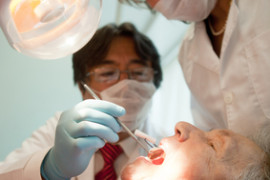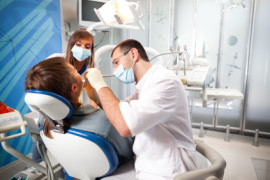An oral pathogen that connects periodontal disease with adult rheumatoid arthritis may also influence the progression of the disease in children, according to new research published in Pediatric Rheumatology.
Juvenile idiopathic arthritis (JIA), also known as juvenile rheumatoid arthritis, is an autoimmune inflammatory joint disease that affects individuals under the age of 17. It is a condition that may follow a child into adulthood. In some cases of JIA, the presence of specific antibodies causes this condition to present very similarly to adult rheumatoid arthritis.
These antibodies—anti-cyclic citrullinated peptide (CCP) antibodies—provide an important distinction, according to researchers, who note that “elevated antibody responses to P. gingivalis have been demonstrated in adults with CCP-positive RA.”
According to the Mayo Clinic, testing positive for CCP antibodies in RA indicates an “increased likelihood of erosive disease” and could indicate that a patient has an aggressive form of the disease.
So is P. gingivalis an etiological factor in children with JIA?
Researchers assessed health history and tested children with JIA—some CCP-positive, some CCP-negative—for antibodies to three common pathogens of oral origin: P. gingivalis, P. intermedia, and F. nucleatum. They found that children with CCP-positive juvenile idiopathic arthritis had a significantly higher incidence of bleeding and tender gums than CCP-negative children, and that they had substantially higher quantities of antibodies to P. gingivalis. They concluded that the oral microbiome may be involved in the pathogenesis of CCP-positive juvenile idiopathic arthritis.
Rheumatoid arthritis and periodontal disease have a complex and intertwined relationship that is not entirely understood by researchers. It has been well documented, however, that periodontal pathogens can aggravate the condition through their ability to enhance the body’s inflammatory response and migrate throughout the body to the joints. Furthermore, research has shown that periodontal therapy can be beneficial to patients with rheumatoid arthritis, even if they are already in remission.
This study demonstrates a substantial connection between the pathogen P. gingivalis and CCP-positive rheumatoid arthritis in both adults and children. Specifically, researchers suggest a potential causal role of P. gingivalis in the development of the disease, which makes research in this area crucial to finally understanding the mechanisms behind the RA-oral health connection.



